Chickens can be both. But, with careful planning, they will be great for your garden! Julie Moore explains
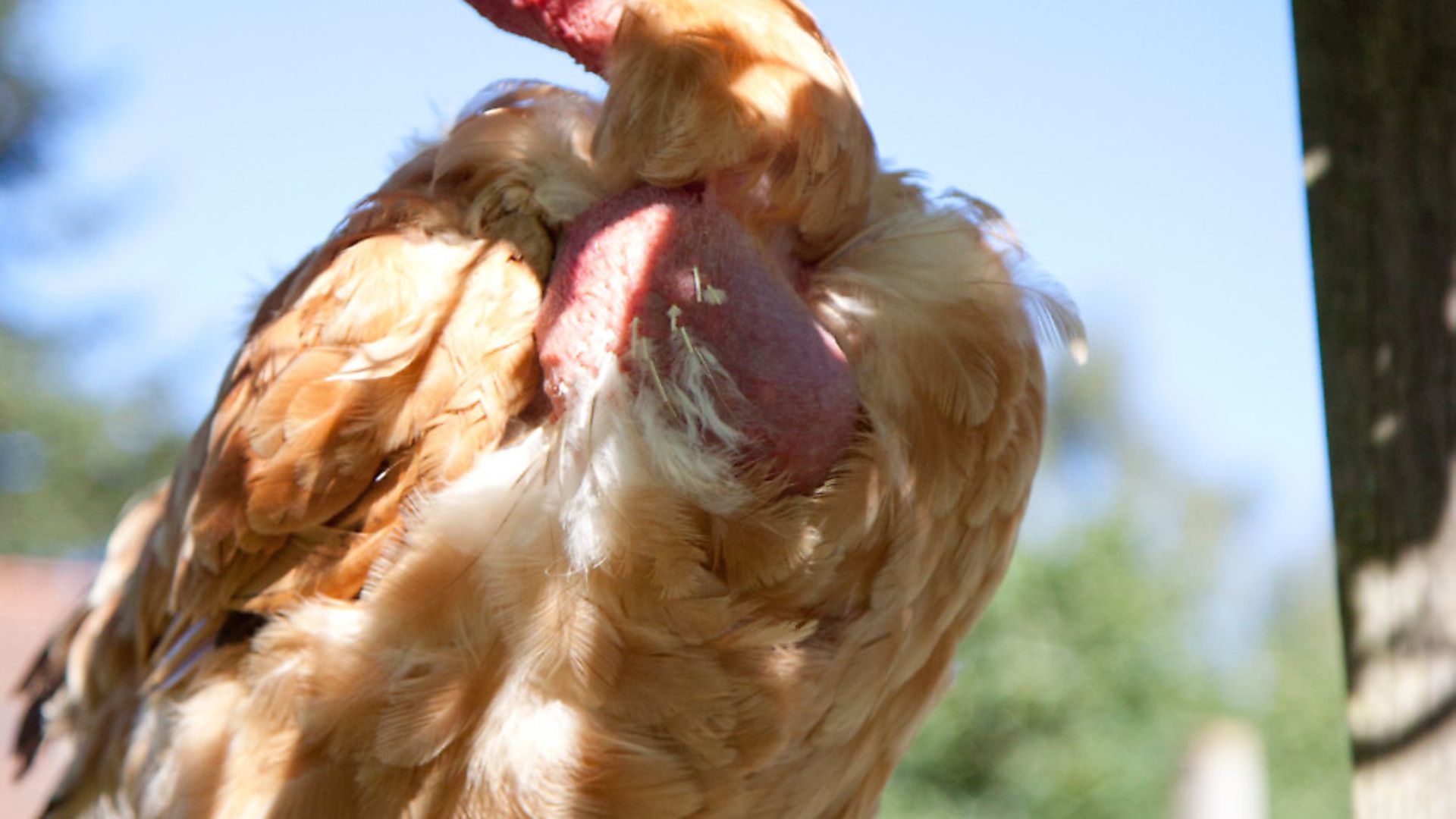
Given half a chance, chickens can create havoc in any garden, digging up newly planted flower beds, making dust baths in your once immaculate lawn, which now bears a striking resemblance to a minefield, not to mention decimating your prized crops in a matter of minutes. But it needn’t be a horror story — with a little careful planning, your chickens can be your perfect garden allies.
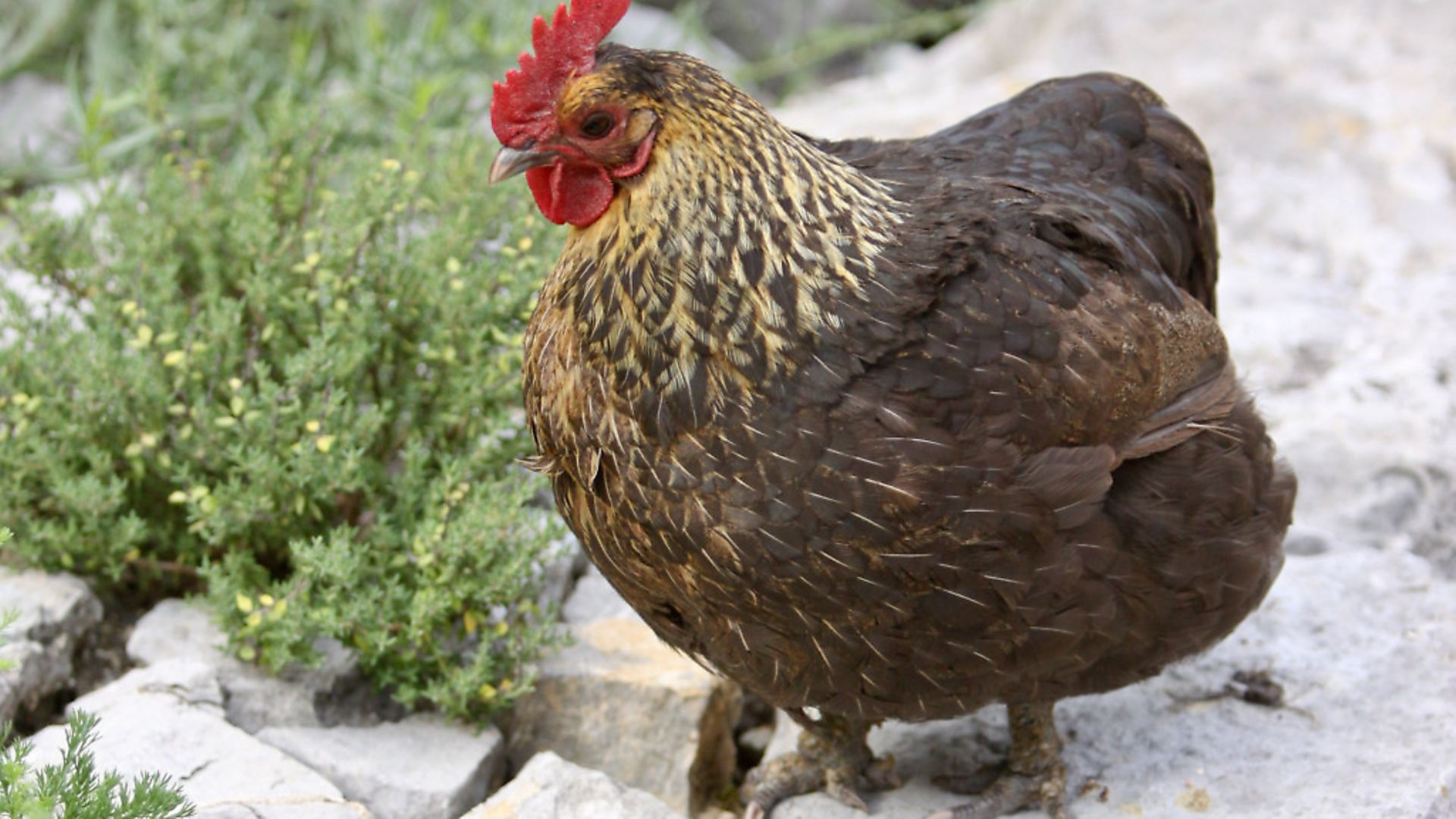
Chickens love nothing better than to be in the open air and sunshine, exercising, and satisfying their curiosity whilst finding their own natural foods which are far superior to anything we can buy for them. So why not reap the benefits of their passion for the great outdoors and put your flock to work? Not only will your feathered friends help on the labour front, they’ll help your pocket too.
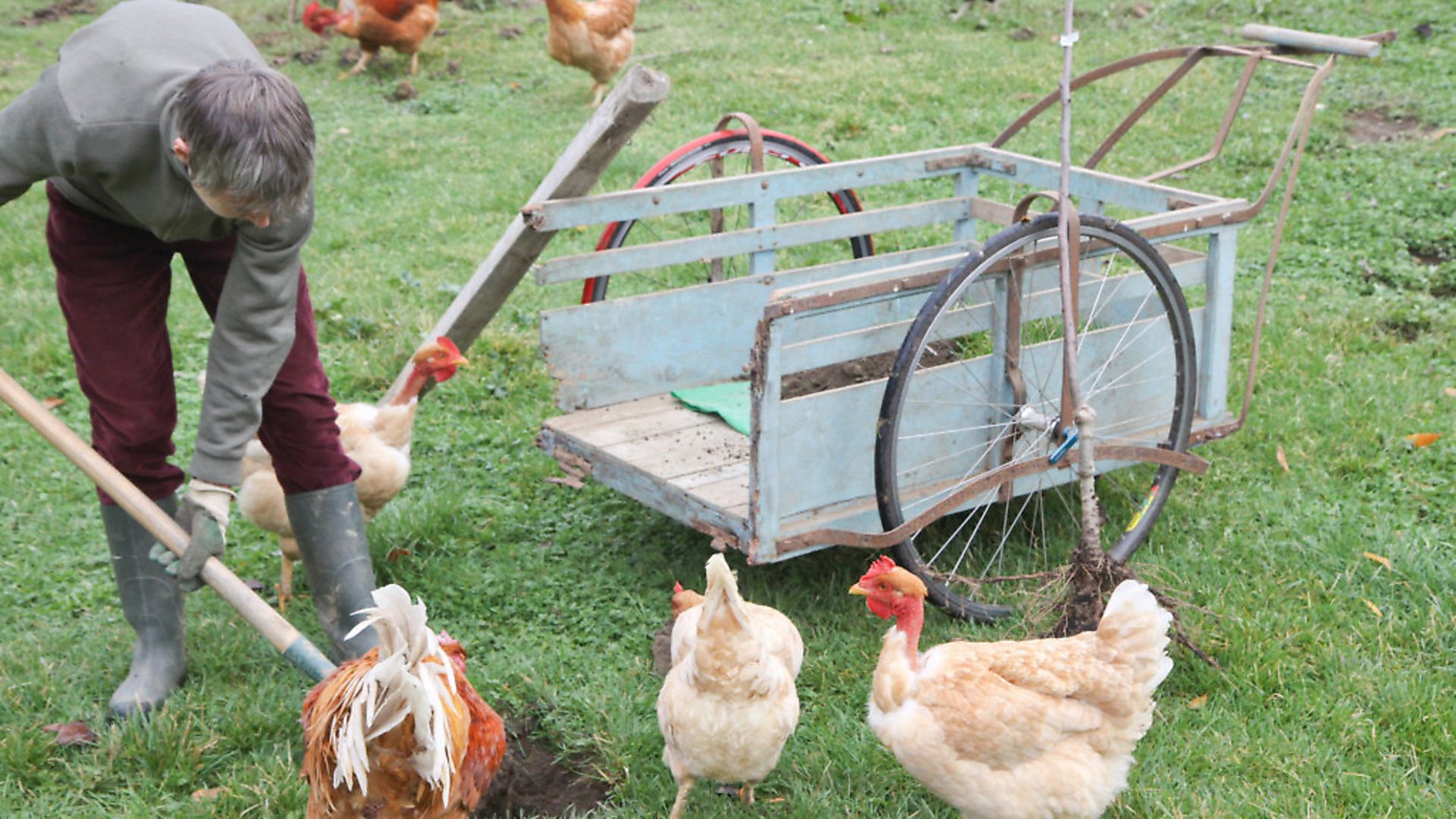
If you’re to enlist the services of your flock, it’s only possible to garden organically. Whilst chemical fertilisers and pesticides are potentially harmful to your chickens, your flock are low-cost, energetic organic pesticides, herbicides and fertilisers all-in-one!
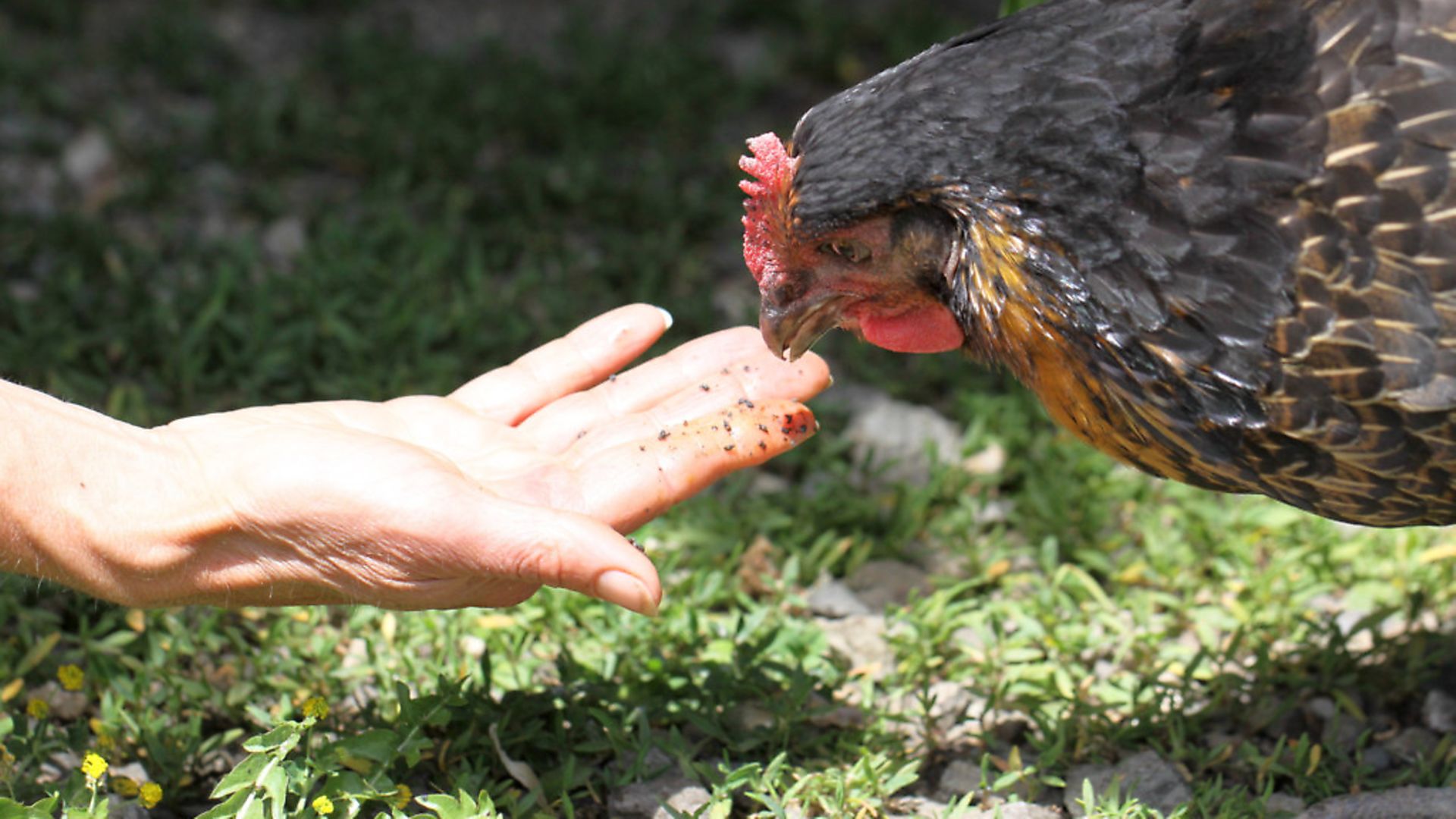
As omnivores, chickens have a huge appetite for damaging insects, snails, beetles, mice and snakes, all of which are good sources of protein for them. If you have fruit trees, your flock will clean up any windfalls, thus helping to break the lifecycle of pests and diseases, which may overwinter in the decaying fruit. Bug patrol stints are particularly effective in the spring and autumn when pests are most prevalent.
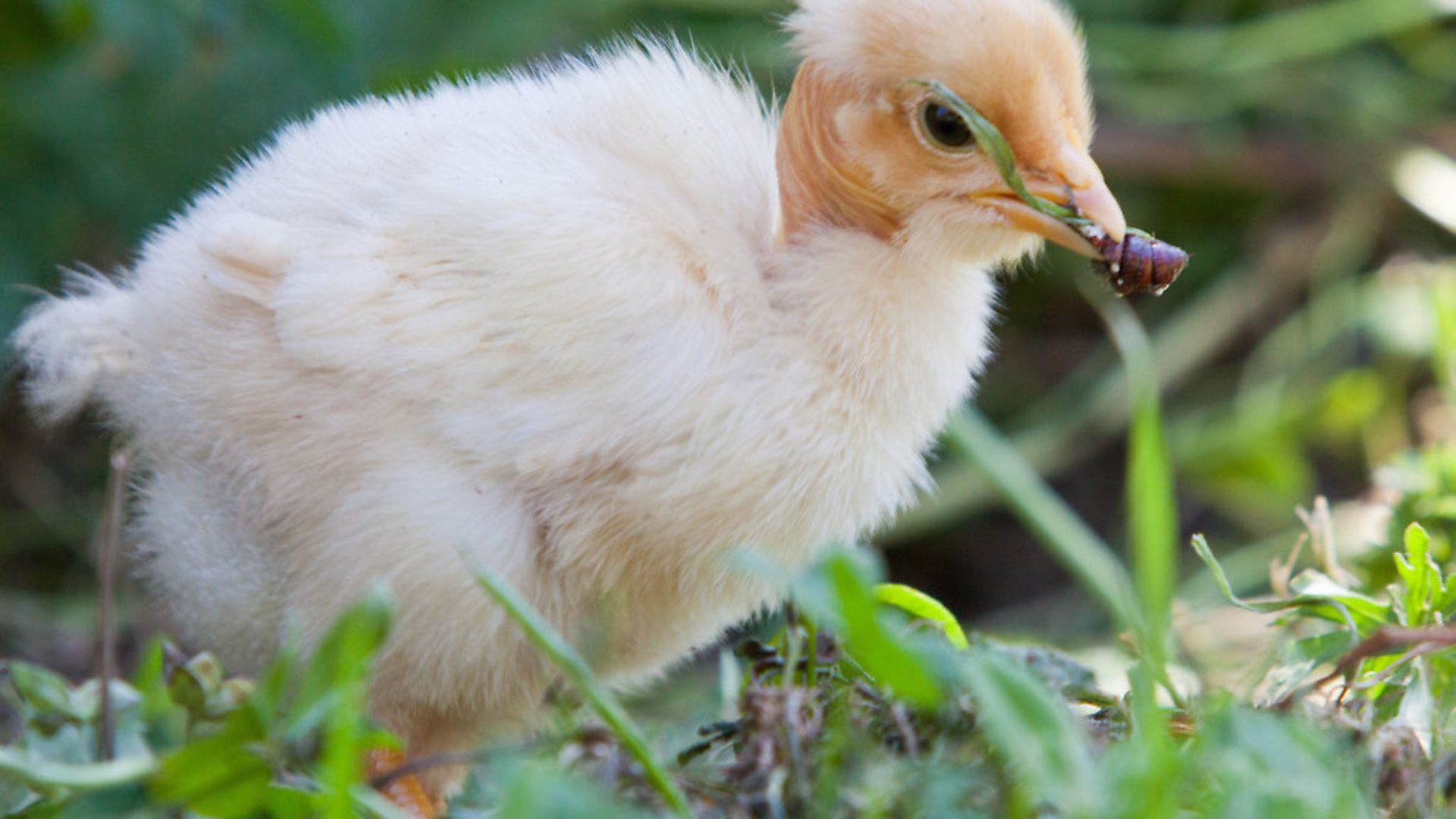
Digging beds, whether by hand or using a rotavator, is undoubtedly hard work. But have you ever considered using chicken power instead?
Natural tillers
Chickens are environmentally-friendly tillers of the earth, creating perfect seed beds by scratching only the surface layer without disrupting soil structure. Their scratching will quickly deplete the weed seed bank, which means less weeding for you in the long run! Tilling offers a banquet of nutritious food, for example, earthworms, insects and fresh greens such as chickweed and dandelion leaves as a reward for their efforts. They’ll also boost soil life and fertility with their droppings that they’ll obligingly turn under as they work.
Poultry manure has long been regarded as the most desirable animal manure amongst organic gardeners, ranking top in nitrogen, phosphorus and potassium. Hens produce on average 85-115g (3-4oz) of fresh manure daily. A flock of six hens will provide 186-252kg (410-547lbs) of valuable organic fertiliser a year.
Fresh chicken droppings, referred to as ‘hot’ manure due to the high nitrogen content, should be composted first before being used as a fertiliser unless you are creating a hot bed. Adding fresh manure directly to your garden may burn plant roots and seedlings or make your perennials grow so fast they become thin and weedy. The odd dropping courtesy of your working flock won’t present a problem as they will be working well ahead of the planting season and the droppings will have a chance to decompose.
To some extent, your hens can act as lawnmowers, particularly if they’re confined to a small area. However, poultry are fussy grazers and won’t eat everything — a blend of grasses and legumes such as clover are the most palatable forage. Chickens like their forages relatively short; younger and more succulent plants tend to be shorter, less fibrous and therefore more palatable. You’ll still need to mow the grass, but not quite so often.
Your feathered army can make the back-breaking chore of scarifying the lawn fade into a distant memory. Their scratching will de-moss and aerate the lawn — you’ll be amazed at how much thatch they can find and remove! They’ll also break the thatch down into small decomposable pieces.
But it’s not all such a rosy picture. If left unsupervised, your feathered workforce could unknowingly (to them) be creating havoc.
It’s not practical to give your chickens free rein in the vegetable plot or prized flower beds during the growing season. Not only will their incessant scratching cause widespread destruction, they’ll devour your crops and flowers which they happen to like just as much as you! If there’s a choice between young tender shoots and weeds, they’ll go for the shoots every time.
Mulched areas pose a particular headache as your flock, in their quest for food, will happily kick the mulch everywhere. Clearing up the mess can be a chore, but perhaps you need to remind yourself that the bug population has diminished as a result of their antics.
As your flock now view your garden as their own personal buffet, they usually decide that it also doubles up as a dust bathing zone. The ideal bathing spot is normally in the middle of a row of crops or amongst a prized bed of flowers!
Maximising the benefits of your feathered workforce may require some sort of confinement. One option is to use a chicken tractor — a small, lightweight, portable bottomless pen which can be put on a specific area for the chickens to ‘work’ whilst the adjacent beds remain unscathed. Chicken tractors can be any size or shape and can be designed to fit over raised beds. It can double up as a cold frame by covering with horticultural fleece or clear plastic sheeting when you’re not using it as a tractor.
Permanent or temporary fencing, erected either around the garden or to contain your chickens, is your best option to protect your plants. Temporary fencing is perfect for orchard areas and the vegetable plot during the growing season and can be removed in the autumn for post-harvest gleaning.
If your chickens free-range, it’s likely that you’ll need to protect certain individual plants and seedlings. A simple collar of chicken wire placed around small, delicate plants is normally enough to discourage chickens provided they have plenty of other food sources. Recently sown seeds or newly planted groundcover plants can be protected using sturdier galvanised mesh. Chickens love flicking loose soil out of pots and containers. To stop their antics, place a ring of large stones around the base of each plant. To outwit your flock, try sowing seeds in the crevices between stones that chickens can’t get at. As the chickens are unable to scratch in the sowing area, the seeds will have a chance to germinate.
You’ll find that gardening with chickens is a constantly evolving process. Before hoisting the white flag in surrender, with a little planning your chickens can become your perfect garden allies rather than enemies.
Image(s) provided by:
Archant
Archant
Archant
Archant
Archant







